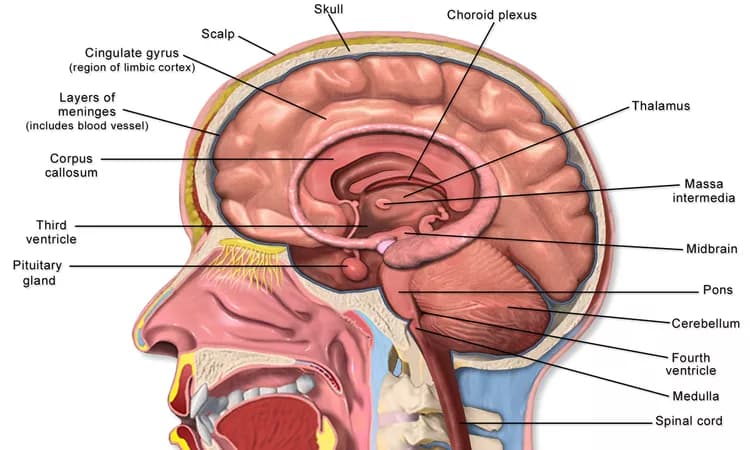
Brain Marker Of Poor Memory In Schizophrenia Patients Identified
A new study has identified a pattern of brain activity that may be a sign of memory problems in people with schizophrenia. The biomarker, which the researchers believe may be the first of its kind, is an important step toward understanding and treating one of the most devastating symptoms of schizophrenia.
The study, led by researchers at Columbia University Medical Center (CUMC) and the New York State Psychiatric Institute (NYSPI), was published in the journal Biological Psychiatry.
While schizophrenia typically causes hallucinations and delusions, many people with the disorder also have cognitive deficits, including problems with short- and long-term memory.
"Of all the symptoms linked to schizophrenia, memory issues may have the greatest impact on quality of life, as they can make it difficult to hold down a job and maintain social relationships," said first author Jared X. Van Snellenberg, PhD, assistant professor of clinical psychology (in psychiatry) at CUMC and research scientist in the division of translational imaging at NYSPI. "Unfortunately, we know very little about the cause of these memory problems and have no way to treat them."
Researchers have long hypothesized that memory problems in schizophrenia stem from disruptions in the brain's dorsolateral prefrontal cortex (DLPFC). This area of the brain plays a key role in working memory--the system for temporarily storing and managing information required to carry out complex cognitive tasks. However, previous studies, which used functional magnetic resonance imaging (fMRI) to compare DLPFC activation in healthy individuals and those with schizophrenia while taking memory tests, have not shown clear differences.
Dr. Van Snellenberg hypothesized that the studies failed to detect a difference because the memory tests did not have enough levels of difficulty. In 2014 he and his colleagues designed a computerized test that includes eight levels of increasingly difficulty in a single working memory task.
In the current study, 45 healthy controls and 51 schizophrenia patients, including 21 who were not taking antipsychotic medications, were given the eight-level memory test while undergoing fMRI imaging. As expected, the healthy controls demonstrated a gradual increase in DLPFC activation, followed by a gradual decrease in activation as the task gets harder. But in both medicated and unmedicated schizophrenia patients, the overall response was significantly weaker, with the weakest response occurring in those who had the most difficulty with the memory task.
The researchers believe this may be the first time a brain signal in DLPFC has been directly linked to working memory performance in patients with schizophrenia.
"Our findings provide evidence that the DLPFC is compromised in patients with schizophrenia," said Dr. Van Snellenberg. "What they don't tell us is why, which is something we ultimately hope to figure out. In the meantime, we now have a specific target for treatment, and a new way to measure whether a treatment is working."
The above post is reprinted from materials provided by Columbia University Medical Center. Note: Materials may be edited for content and length.
Disclaimer: DoveMed is not responsible for the adapted accuracy of news releases posted to DoveMed by contributing universities and institutions.
Primary Resource:
Van Snellenberg, J. X., Girgis, R. R., Horga, G., van de Giessen, E., Slifstein, M., Ojeil, N., ... & Smith, E. E. (2016). Mechanisms of Working Memory Impairment in Schizophrenia. Biological Psychiatry.
Related Articles
Test Your Knowledge
Asked by users
Related Centers
Related Specialties
Related Physicians
Related Procedures
Related Resources
Join DoveHubs
and connect with fellow professionals

0 Comments
Please log in to post a comment.